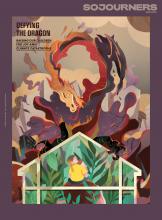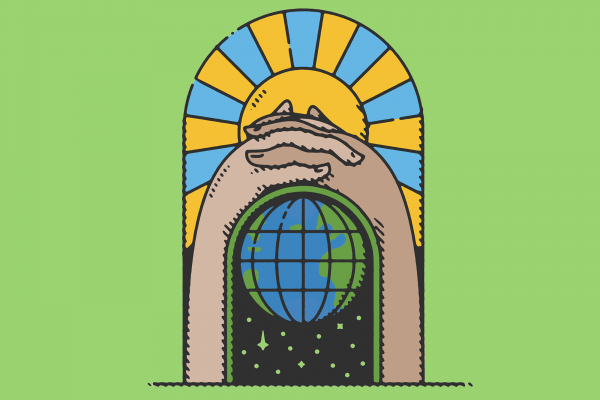Editors’ note: In April 2022, Mark L. MacDonald resigned as National Indigenous Anglican Archbishop and relinquished the exercise of ministry in the Anglican Church of Canada due to acknowledged sexual misconduct. His resignation was announced by the Most Rev. Linda Nicholls, archbishop and primate of the Anglican Church of Canada.
REPENTANCE, SAYS RABBINIC teaching, is one of seven things that preceded the creation of the universe. Without it, Creation could not survive. In our own time, we will witness the truth of this teaching in painful clarity.
The crisis of climate disruption is directly and intimately related to an unsustainable exploitation of Creation’s resources and the ecospheres that create those resources. By design, this exploitation only benefits a few, a few mostly shielded from the consequences of this obscene theft. The great mass of humanity is not shielded. People living in poverty, racialized minorities, and Indigenous peoples—those least responsible for this planetary breakdown—are the primary targets of climate injustice.
For some, it seems adequate to simply adjust their disposal of some of the waste and by-products of exploitive consumption. This has recently taken on an air of piety. Others look forward to technological and economic solutions that promise that the wealthy few can consume their way out of trouble.
Read the Full Article

